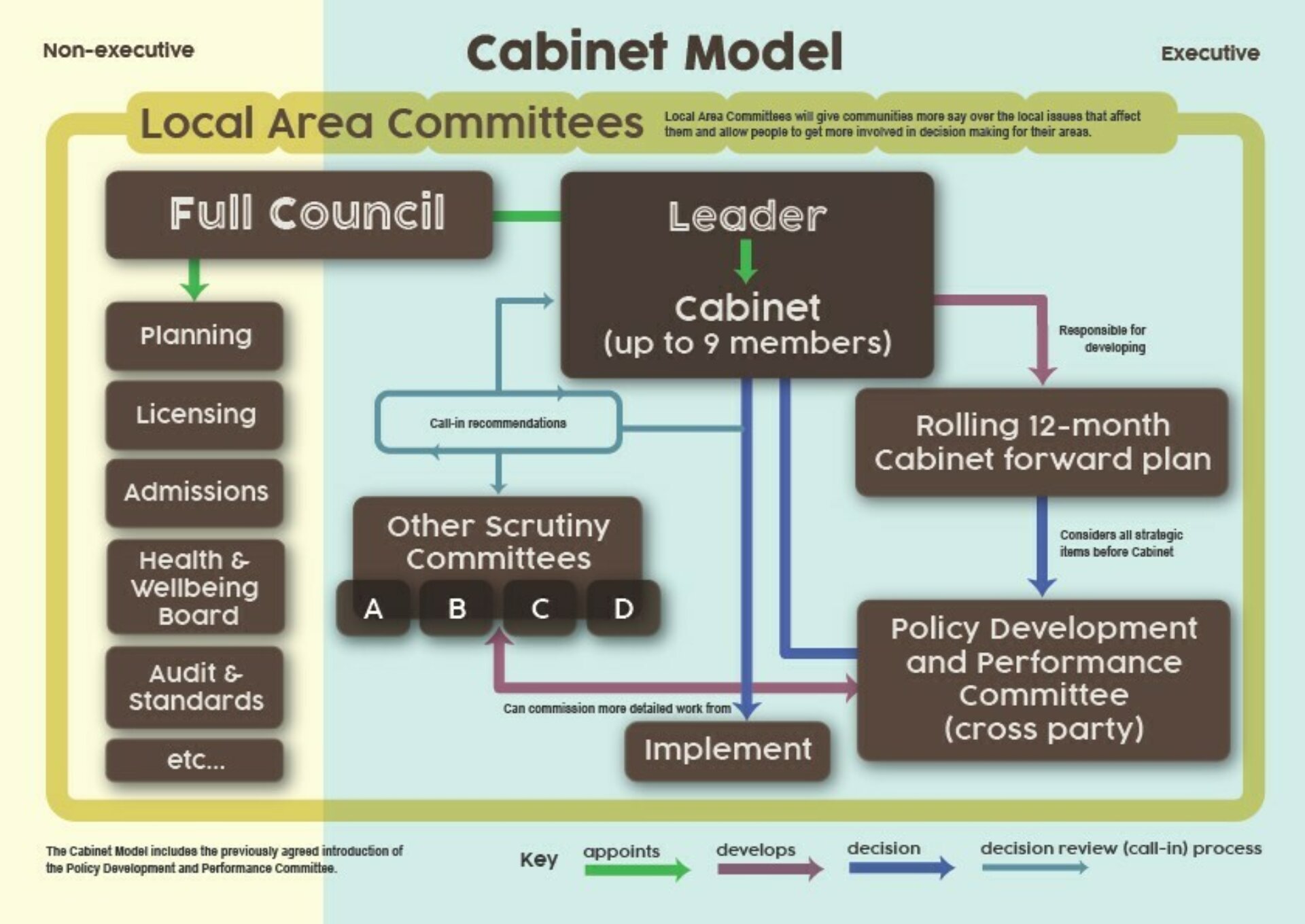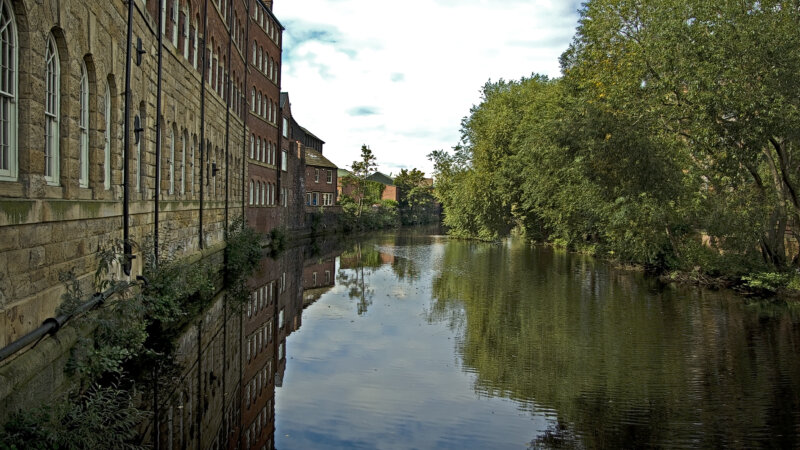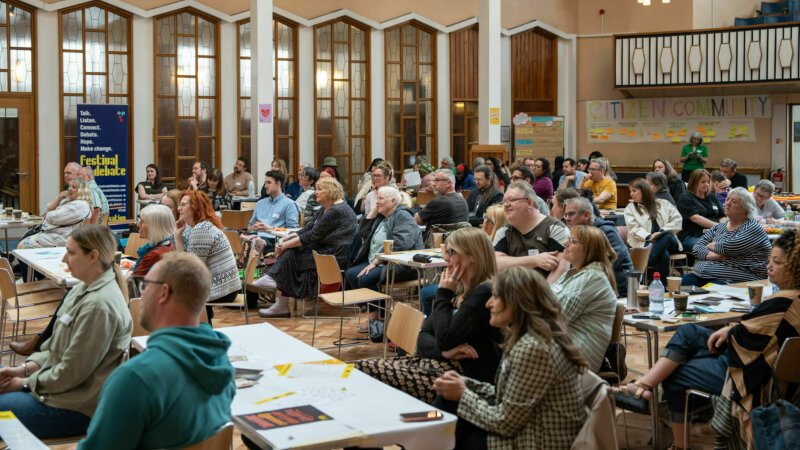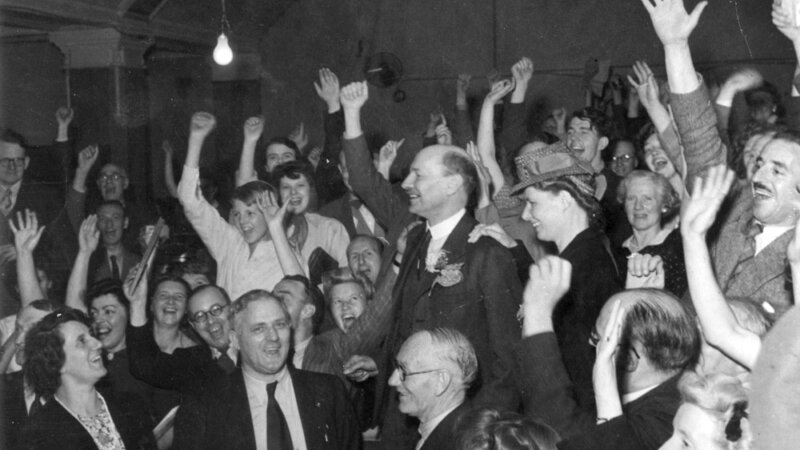Campaigning ramps up ahead of crucial referendum to decide how Sheffield will be run
Campaigners are calling on voters to back a new approach to decision-making this Thursday, but representatives of big business think a committee system will lack leadership.
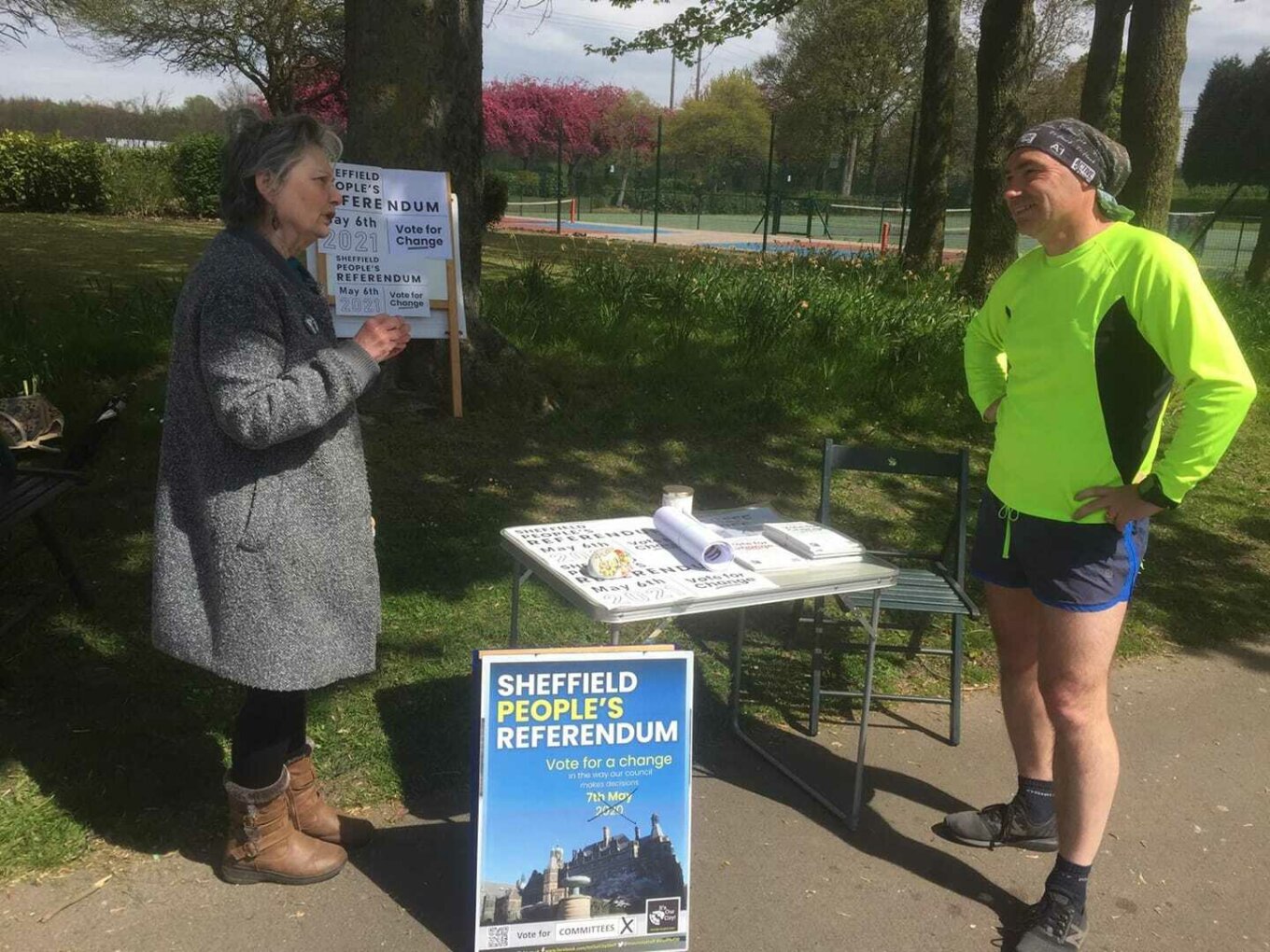
It's Our City! campaigners raising awareness of Thursday's referendum in Darnall.
Anne Barr.A local referendum taking place this Thursday could decide how political decisions are made in Sheffield for a generation.
Voters will be asked whether they want Sheffield City Council to keep or scrap the so-called 'Strong Leader' model of governance, which it was forced to adopt by central government in 2000.
Under this system, all important decisions are made by a cabinet of ten councillors from the ruling party or coalition, currently Labour, appointed and overseen by the Council Leader.
The alternative option will be to switch to a Committee System, similar to that used by all councils before 2000. This would see more decision-making take place in committees focusing on specific topics, whose membership would be representative of the political make-up of the whole council.
Campaigners with pro-committee group It's Our City! say this will make the council more accountable to residents across Sheffield, as more of the 84 councillors will be directly involved in decision-making.
It's Our City! coordinator Ruth Hubbard told Now Then that more than 90% of Sheffield voters "have no basic representation in council decision-making."
"Voting for change is the only way to restore a bit of democracy and fairness so that all elected councillors are able to do the job voters think they are electing them to do – to play a meaningful role in local decision-making on behalf of the communities they serve."
As an organisation the Council must take a neutral position on the referendum, but Labour leader Bob Johnson has supported the 'Strong Leader' model on Twitter.
Ambitious cities need ambitious leadership as #Sheffield deserves - not going back to outdated committees #VoteforSheffield #VoteforFuture in the referendum https://t.co/AfQxZfE2lD
— Henri Murison (@henrimurison) April 10, 2021
He's been joined by big business representative Henri Murison, who wrote an op-ed in The Star claiming that "a committee system would cripple Sheffield politically and economically."
Murison argues that the city can only make bold and ambitious decisions with a centralised decision-making system led by a 'strong leader', and that a vote for change will leave us trailing behind Leeds and Manchester.
Murison, who lives in Ilkley in West Yorkshire, is the director of the Northern Powerhouse Partnership (NPP), a private thinktank set up by then-Chancellor George Osborne in 2016 to represent the interests of business in the North.
NPP's board once included Julie Dore, the former leader of Sheffield Council, whose name became synonymous with the 'strong leader' model after her handling of the street tree dispute raised questions about accountability and oversight.
"Larger cities that use more democratic systems, like Glasgow, are doing well and often outperform Sheffield," said It's Our City's Hubbard, in response to Murison's article.
"There is a clear, detailed and robust relationship – repeatedly demonstrated pretty much everywhere – between the quality of democratic practices and the most successful cities, especially in terms of overall wellbeing, resilience and healthy economies."
How a committee system would work
If a vote for change is successful on Thursday, the new system – known as a Modern Committee system – would be different to the committee systems all councils ran before 2000.
The exact design of the system will take a year to draw up, but Sheffield City Council have released a model of what it might look like.
The new system would probably create six committees that would make decisions on transport, business, families, culture, communities and the environment. Each would have around 12 to 14 councillors.
The membership of each of these committees would be politically proportionate to the number of seats each party has in Full Council – meaning that if the Labour group have a majority on the Council, they would also have a majority on each committee.
The chair of each committee would also sit on an overarching Policy & Strategy Committee. This would replace the current cabinet and would also have a politically proportionate membership.
Chaired by the Council Leader, this committee would be responsible for overall strategy and direction and would oversee the development of a rolling 12-month forward plan.
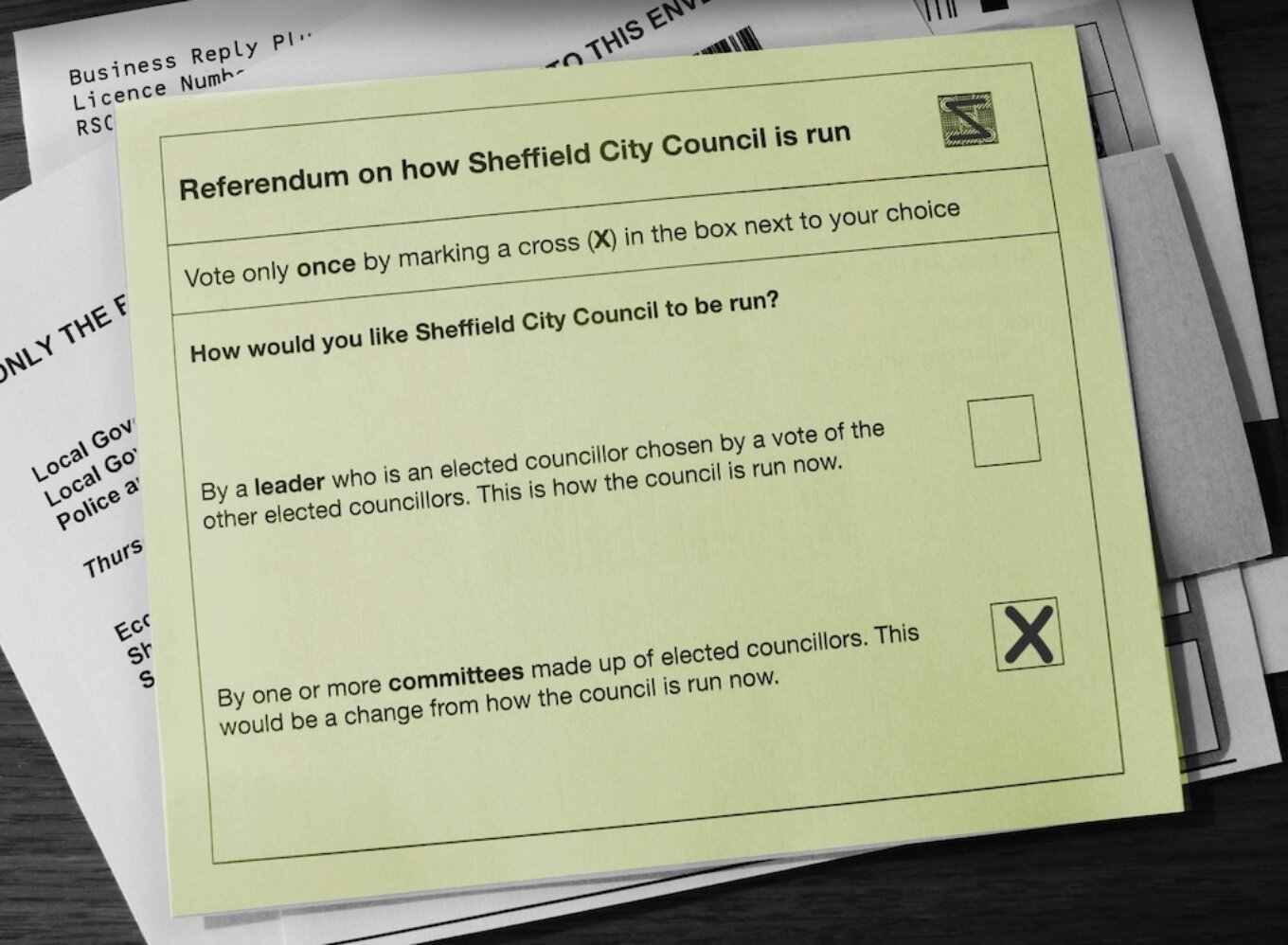
A completed ballot paper for Thursday's governance referendum.
It's Our City!Other committees under the current system where councillors outside the cabinet already have some power, like the Licensing Committee and the Planning Committee, would stay as they are.
It's Our City! say a Modern Committee system would allow the Council Leader to spend more time on strategy and representing the city nationally and internationally, rather than micromanaging their cabinet.
Supporters of the 'Strong Leader' model, like Murrison and Johnson, argue that a committee system will lead to slower decisions without a clear sense of leadership.
Since a change in the law in 2011, councils including Belfast, Brighton, Glasgow and a number of London boroughs have decided to switch to a Modern Committee system.
Although these councils all changed voluntarily, the Localism Act allows citizens to force a referendum on the issue if they collect signatures from 5% of the local population in 12 months. It's Our City! passed this threshold in late 2019, but the referendum was delayed by a year due to the pandemic.
The local Labour Party declined to take a position on the referendum when asked by Now Then, but the Green Party, Women's Equality Party and TUSC all support the change.
Hubbard points to the ongoing corruption scandal in Liverpool, as well as the failings at Croydon Council, as examples of the "serious risks" associated with power being concentrated in too few hands.
"The referendum is a small reset," she said. "It enables us to restore some basic democratic representation, and it puts us in a much better position for the future."
The result of the referendum isn't expected to be announced before Monday 10 May.
The question on the ballot paper
How would you like Sheffield City Council to be run?
By a leader who is an elected councillor chosen by a vote of the other elected councillors. This is how the council is run now.
Or
By one or more committees made up of elected councillors. This would be a change from how the council is run now.


